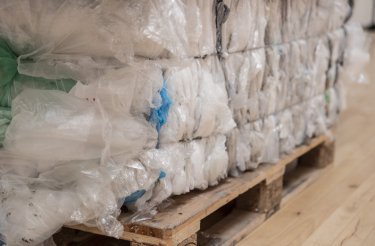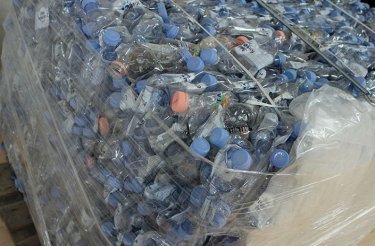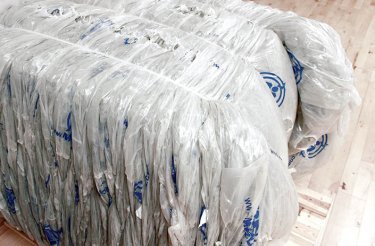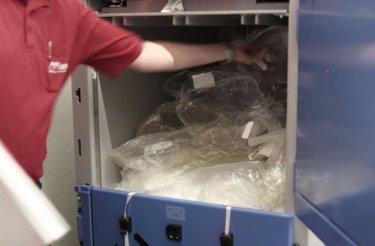
Is it Possible to Bale Plastic?
Learn more about plastic baling in our helpful guide to trash managing balers and compactors.
Is it Possible to Bale Plastic?
Plastic is a material that can be baled and is among the most common materials to be pressed. Other suitable materials for bailers are cardboard, aluminium, paper, and non-ferrous materials. Please inform yourself about what materials can withstand the baling process before you begin compressing materials, as some machines only work with certain types of plastic.

Types of plastic a baler can compress?
Different types of plastic balers are made to match your amount of plastic trash, how it’s used depends of what type of plastic you’re compressing.
LDPE. This category includes plastic bags for frozen foods, bread packaging, and squeezable bottles such as honey or mustard containers is suitable for LDPE balers. These are commonly used in commercial, industrial, and service settings, especially where goods are wrapped or secured on pallets. They are available in a variety of sizes, from small units to high-compression models.
PVC. Polyvinyl Chloride balers are built to compact tough, rigid plastics like those found in televisions, computers, electronics, and other sturdy accessories. Because PVC is harder than most other plastics, it requires a baler with reinforced construction and strong pressing power to achieve effective compaction.
PET Bottles and Containers. This group covers everyday items such as soda bottles and oven-ready food trays. Industries, especially in the food sector, often struggle with PET trash due to its high volume and widespread use. To bale PET efficiently, businesses should use a machine designed for this purpose or make sure caps are separated before the bottles are compacted.

How does the Baling Process Work?
A baler compacts loose plastic into tightly packed blocks called bales. By doing this, it drastically cuts down the amount of space the plastic trash takes up, making it easier to store and far simpler to move. To keep each bale secure and intact, materials like strapping, hoops, wire, or wrap are used.
Beyond saving space, baling can also lower trash disposal expenses. These dense, uniform bales aren’t just waste – they can be sold, turning what would have been discarded into a potential source of revenue.

What makes Businesses Commit to Baling?
Many companies produce large amounts of plastic that can’t be recycled, and sending it to a landfill is not only expensive and time-consuming but also creates logistical headaches. With global plastic trash hitting 777.23 billion lbs last year, customers are increasingly expecting businesses to take visible steps toward sustainability. For companies that want to protect their reputation, managing plastic in an environmentally responsible way is no longer optional.
Business leaders understand that a strong public image draws customers in, while a poor one drives them away. That’s why, instead of quickly hauling their plastic trash to the dump, they weigh how those choices affect profitability. Using balers to compact and manage their plastic helps cut costs, meet sustainability expectations, and demonstrate genuine environmental responsibility.

How Can We Support You?
Get in touch with us to learn how Mil-tek can help your business streamline its trash management and improve efficiency.
We will reach out to you as soon as possible.